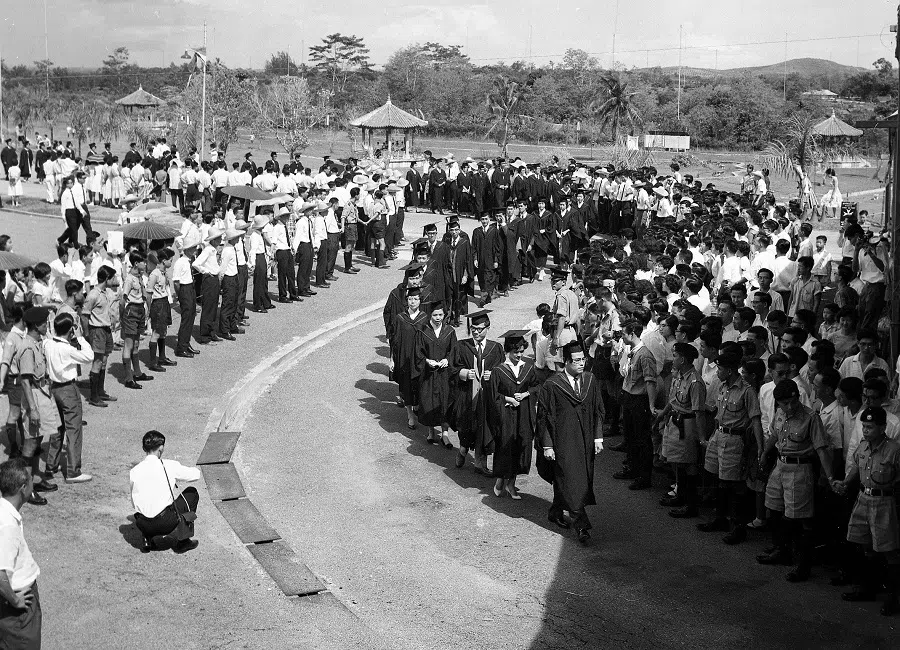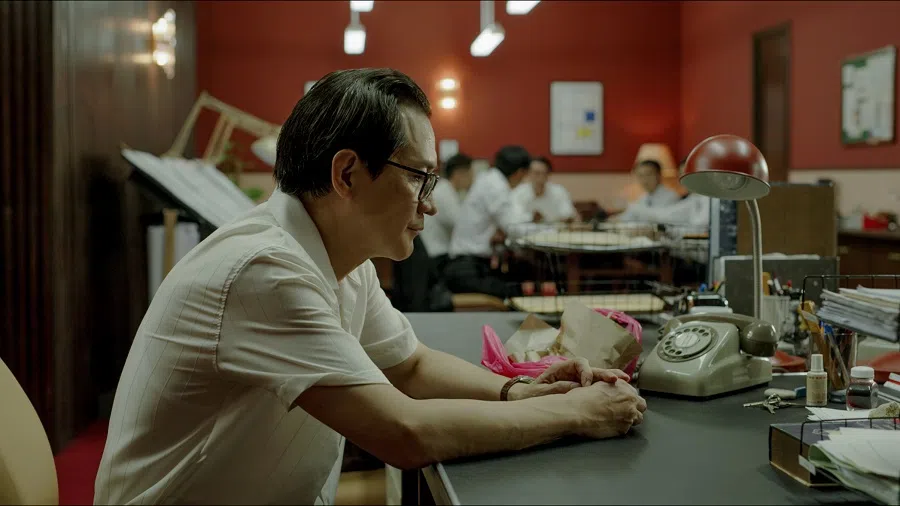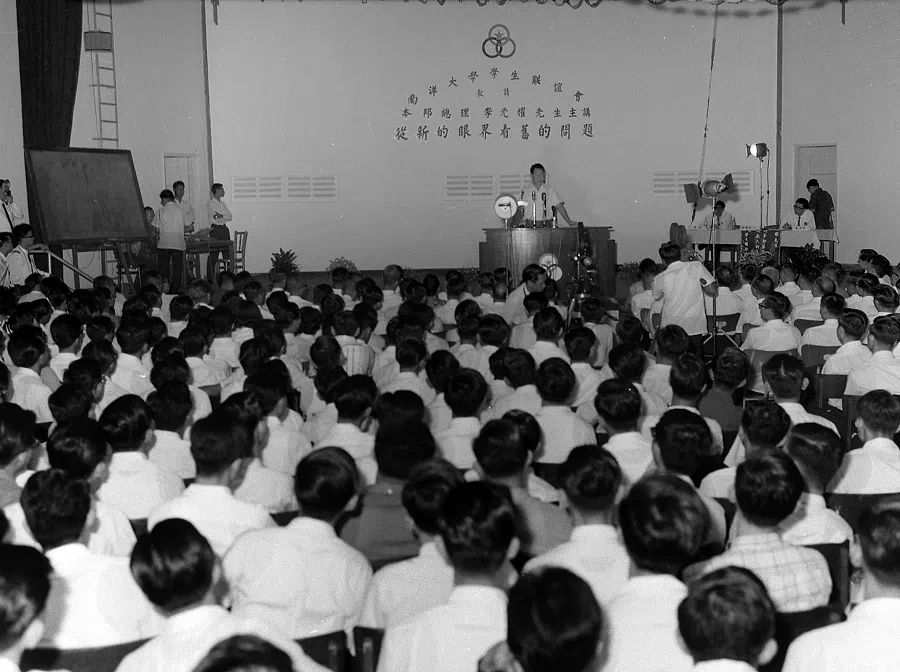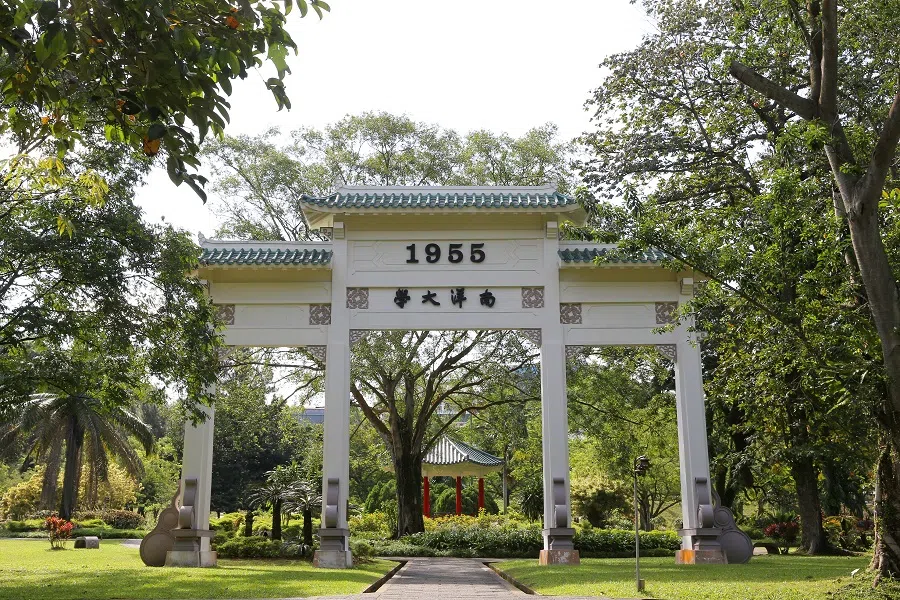A Year of No Significance: Portraying the grey life of a Nantah graduate?
Lee Guan Kin, a Nanyang University (Nantah) graduate herself, was happy to see a local film made about the life and times of a Nantah graduate in the year 1979, when "Chinese" elements seemed to be fading from society. But she worries that the grey life depicted may miss the true plot: Nantah graduates with grit and spirit went on to become prominent people in society, not in spite of their education and upbringing, but because of it.

I recently watched A Year of No Significance, a film by local filmmaker Kelvin Tong. The title and content of the film caught my attention. The English title of the film was inspired by 1587, A Year of No Significance: The Ming Dynasty in Decline (Chinese title:《万历十五年》, Wanli shiwu nian) written by Chinese American historian Ray Huang. The protagonist is a downcast Nanyang University (Nantah) graduate in the 1970s - everything in his life from education and career to family and marriage goes wrong.
I was captivated by the film's title. In Huang's book, Wanli refers to the era name of Emperor Shenzong of Ming. On the last page of the book, there is a line that reads: "1587, the fifteenth year of the Wanli Emperor's reign, the Year of the Fire Pig; the world seems at peace and nothing significant has happened. But in fact, the Ming dynasty's development has come to an end." Huang used a long lens to peek into the development of historical events, connecting the past, present and future.
In that context, the name "A Year of No Significance" adds a certain profundity to the film, giving filmgoers a little secret delight and anticipation. The synopsis of the film highlighted that the film is set in Singapore in the year 1979. It follows the story of a 45-year-old architect facing changes and disconnection, and "mourns the loss of a generation in the 1970s when Singapore underwent a brutal and radical change in language policy".
Things lost in change
What happened in 1979? That year, Singapore's long-running "Speak Mandarin Campaign" was launched. The government chose nine outstanding Chinese-stream secondary schools to serve as Special Assistance Plan (SAP) schools. These schools would place equal emphasis on English and Mandarin. Meanwhile, the Joint Universities Admissions Office of the University of Singapore and Nantah announced that a minimum pass in a second language would be required for English-stream students in the academic year 1981-82.

What exactly did Chinese-medium schools and the Chinese language experience, such that the country had to implement a series of measures to salvage the situation? Then came the disappearance of Nantah in 1980 and the end of Chinese-medium schools in 1987.
... how did the vanishing of the island's "Chinese" elements develop and evolve? Was 1979 really "a year of no significance"? What impact did this change have?
Through fragments from the characters' references to the closure of Chinese-medium schools, the decline of Chinese dialects and Chinese newspapers, and the implementation of the Speak Mandarin Campaign, the film depicts the era as one of "Chinese" elements fading in society.
I easily slipped into the mind frame of Wanli shiwu nian - how did the vanishing of the island's "Chinese" elements develop and evolve? Was 1979 really "a year of no significance"? What impact did this change have? What price will we have to pay? What cultural scars and anxieties did the audience glean from the protagonist's life?
But I quickly realised that I was thinking too much and this was not Tong's intention, even though he told Lianhe Zaobao in an interview that he wanted to make a film about the closure of Nantah and the decline of the Chinese language in Singapore.
Darkness behind the light
The closure of Nantah and the decline of the Chinese language are but the backdrop to the tragic character in the film. From start to finish, Tong trained his lens on the protagonist Lim Cheng Soon (played by Peter Yu). In his interview, Tong said he was worried that students who had studied in Chinese-medium schools would slowly vanish and there would not be a chance to make a film about them in the future.

Indeed, focusing on the life of a Nantah graduate is understandable; viewers would indeed want to see how the film presents the life and spirit of Nantah students amid language policy changes.
So I focused on the characters in the film. In 1979, Lim was 45 years old. Nantah officially started its first classes in 1956; if Lim was really among the first batch of Nantah students, he would have been 22 years old when he entered university. But this was not uncommon, since many of those who enrolled in Nantah in the early days were older.
I watched the male protagonist Lim for one and a half hours on the screen and never once saw him break into a smile.
Nantah comprised of three colleges: arts, engineering and business; it never had a faculty of architecture. I guess Lim could become an architect because he had probably attended relevant courses. So then, his command of English should be not too bad and he should be a confident Nantah graduate. But I do not wish to dwell too much on how the director thought over and handled these details here.
I watched the male protagonist Lim for one and a half hours on the screen and never once saw him break into a smile. He worked hard to learn English and was diligent at work. He was filial to his father and loved his juniors. He repeatedly tried to salvage his broken marriage.

Yet nothing went according to his wishes - he was not valued by his superiors at work and could not gel with his colleagues; he was unable to change his father's bias against him and could not stop his wife from leaving him. In the end, two nephews close to him were killed and injured before his eyes, pushing the tragedy to a climax. The atmosphere in the cinema was tense and depressing.
Grit and spirit
As I watched the film, my mind was flooded with memories of the hundreds of Nantah classmates who had overcome countless obstacles to further their studies in Canada, the US, the UK and Australia, with some of them returning to help nurture their juniors from their alma mater, and others becoming academics and researchers at many of the world's leading universities or research institutions.
... it was exactly because of the alma mater's teachings and the influence of the school's culture that had kept Nantah graduates striving to improve and enrich themselves...
I was also reminded of the big group of Nantah graduates who had difficulties finding a job and had risked it all to start their own business, many of whom have become outstanding people in their fields. I will never forget the many Nantah graduates who defied expectations and performed their duties as civil servants with dedication and enthusiasm.
I have even more respect for Nantah graduates who have persevered in the media, education and literary domains that use the Chinese language. Undoubtedly, the disappearance of their alma mater and the language policy changes have deeply hurt their feelings and affected their future. But it was exactly because of the alma mater's teachings and the influence of the school's culture that had kept Nantah graduates striving to improve and enrich themselves (自强不息、力求上进, Nantah's motto). I am surrounded by Nantah graduates who are enthusiastic, proactive, loyal and responsible at work, and who love their family.

Indeed, Nantah graduates share the lingering pain of an era. The protagonist Lim is a typical representative of those who do not have smooth-sailing careers, are disappointed with life and resentful towards unfair treatment.
... I do not know how Nantah graduates with different experiences would react to the film. Would they feel mourned for? Pitied on?
The characters in A Year of No Significance are not unrealistic. But as a Nantah graduate watching the film, I do have my concerns. Tong said that he had no wish to make an angry film, but the film I saw was a tragic film of a grey life. In his director's statement, in which he said "we are what we speak", Tong said that his film "mourns the loss of a generation" and "speaks for them". He hopes that Nantah graduates will watch the film, but I do not know how Nantah graduates with different experiences would react to the film. Would they feel mourned for? Pitied on?
The film seems to be quite well-received; it was a full house when I watched it on 13 December. During the dialogue session, the audience actively posed questions in English. I'm not sure how younger audiences or those unfamiliar with Nantah would feel about Nantah graduates after watching the film? Would they be viewed as a bunch of failures? A depressed and miserable lot? A generation just breathing and living without purpose?
The bond that Nantah graduates share
I am touched and grateful for the passion of the younger generation who care about Nantah and want to make a film about Nantah graduates. But why did I feel anxious and uneasy as I watched A Year of No Significance and even after leaving the theatre?

Nantah and its graduates have played an important role in the history of Singapore's nation building and deserve to be remembered for generations to come. I believe that the film was made with good intentions and am just concerned about how the one-sided interpretation will be understood or even misunderstood by audiences who know nothing about the university.
I am reminded of the musical Chong Jian Nan Da (《重见南大》) put up by the Nanyang Technological University's Chinese Society at the Nanyang Auditorium on 13 March 2004 to commemorate the 20th anniversary of the society's founding.
The musical was directed by Lin Guo Yi (林国一). The Chinese Society had mobilised over 70 actors and backstage helpers (including members of the society's drama team, performance arts team and harmonica team) and interviewed several Nantah alumni, exploring the spirit of Nantah and the alumni's love for their alma mater. It was their hope that the musical would help the younger generation understand Nantah and its alumni. That night, the stage was filled with warmth and the story was touching.
This article was first published in Lianhe Zaobao as ""无关紧要的一年"--充满灰悲色彩的伤痕电影".





